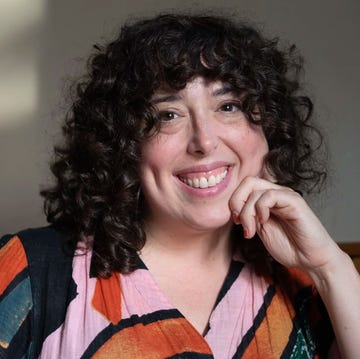A lifer stood up to read his writing after 15 weeks of sitting in a creative writing class I facilitated at a classroom in a maximum-security yard of Lancaster State Prison (California State Prison, Los Angeles County). It was our last day of that session. I had just passed out completion certificates and was about to share juice and cake the prison kitchen staff had brought us. The 40-something-year-old man hadn’t said much during the previous weeks. He didn’t seem to be writing either. I had noticed this, but it didn’t bother me. The class was lively with a flow of ideas and expressions; most of the guys were serving life sentences, some without the possibility of parole (LWOP).
I always feel people listen in their own way. Seeds were being planted, and if someone kept coming to class, I kept teaching.
But now this man stood up and read, opened up his heart about how, ever since he could remember, he had been abused; how drugs took his parents away from him; how he bounced around in the foster-care system, juvenile detention centers, and prison; and how being callous, a predator, had given him power, identity, a way of getting back. But he also related how lost he had become—detached, not fully human. His words were not a litany of excuses or complaints. They were recognition of terrible choices he’d made in a world of limited choices, of the fears and paralysis that impelled him to diminish his true callings.
This OG, who was African American, didn’t care how he would be perceived at that moment. Tears began to fall from his eyes, even as his voice remained strong. We were all riveted—crying tears inside if not on the outside. The men’s silence was the best mark of respect he could have received. When he was done, the quiet lingered for a beat, then the applause rushed in. The men were visibly moved as this man stood poised, unwavering, in the whirl of dark and convoluted sentiments. This and similar moments have made my work in prisons some of the most healing and sacred anywhere.•
Luis J Rodriguez is the author of 17 books in poetry, children’s literature, fiction, and nonfiction. He’s best known for the bestselling memoir Always Running, La Vida Loca, Gang Day’s in L.A. The sequel, It Calls You Back: An Odyssey Through Love, Addiction, Revolutions & Healing was a 2012 finalist for the National Book Critics Circle Award. He’s also founding editor of the renowned small press, Tia Chucha Press, and co-founder of the comprehensive arts & literacy space, Tia Chucha’s Centro Cultural & Bookstore in L.A.’s San Fernando Valley. From 2014 to 2016, he served as the official Poet Laureate of Los Angeles. Luis has worked on three TV shows as a script consultant, including for FX’s Snowfall. His play based on Always Running sold out every weekend in 2019 for three months at Casa 0101 Theater in Boyle Heights, Los Angeles. His last poetry book is Borrowed Bones. His latest book is From Our Land to Our Land: Essays, Journeys & Imaginings from a Native Xicanx Writer.













